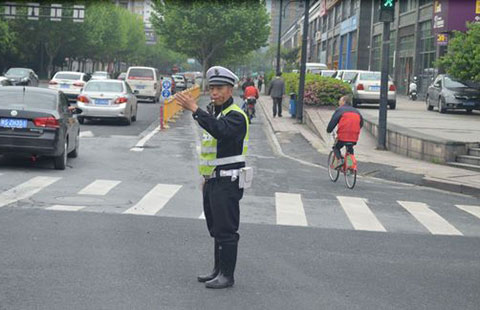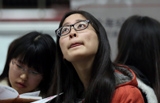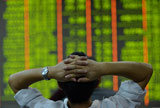Political figures condemn scattered separatist advocacy
By Shadow Li (China Daily) Updated: 2016-05-07 07:59The special administrative region's political heavyweights have condemned advocacy of "Hong Kong independence", saying it is unpopular with the public and has no future.
Speaking on a radio program, National People's Congress Standing Committee member Rita Fan Hsu Lai-tai said on Thursday that the more people talk about "Hong Kong independence", the more the central government will be concerned about national security.
Fan said that before Hong Kong returned to the nation in 1997, people on the mainland spoke very highly of Hong Kong and its people. However, the agitation for "Hong Kong independence" has disgusted many mainland compatriots, said Fan.
She added that this is also why candidates for the chief executive must be loyal both to Hong Kong and the nation.
Fan made the remarks before high-ranking central government official Zhang Dejiang, chairman of the National People's Congress Standing Committee, begins a three-day visit to Hong Kong on May 17.
Zhang is slated to deliver a keynote speech at a Belt and Road Initiative summit to be held in Wan Chai.
Fan said she expected Zhang to discuss a range of issues-including politics, the economy, the financial situation and people's livelihoods - in his speech.
Like Fan, ex-security secretary Ambrose Lee Siu-kwong has also warned that talk of "Hong Kong independence" threatens mutual trust between Hong Kong and the central government. He cautioned that the issue could create even deeper divisions in society.
Lee said the public should condemn people advocating it because it can only lead to a dead end. He added that the SAR will not survive economically without support from the mainland.
Lee, who is a Hong Kong deputy to the NPC, said there is no political or legal warrant for "Hong Kong independence".
Recently, some opposition parties tried to include words of self-determination into their manifestos. Fan, however, called the contention of self-determination for Hong Kong just another way of advocating for "Hong Kong independence".
Under the Basic Law and the "One Country, Two Systems" principle, Hong Kong enjoys a high degree of autonomy. But it is impossible that the autonomy also covers national defense and foreign affairs, Fan said, adding that the fact Hong Kong is a part of China will remain unchanged after 2047.
- Streamlining bid to be redoubled to boost foreign investment, Li says
- 34 landslide bodies found as more storms expected
- Campaign aims to curb physical, verbal and cyberspace bullying
- 60% of career women say no to second child, report finds
- New rule targets military corruption
- Chinese abroad told to be on alert
- About 30 workers buried alive by landslide in east China
- Express delivery firms in Shenzhen promise to outdate tricycles
- China renews blue alert for rainstorm
- IMF: Economic restructuring 'desirable'








